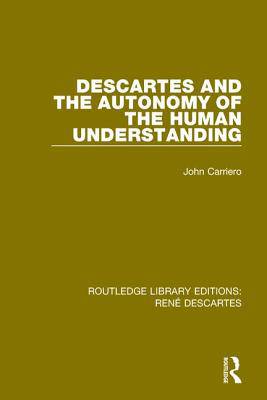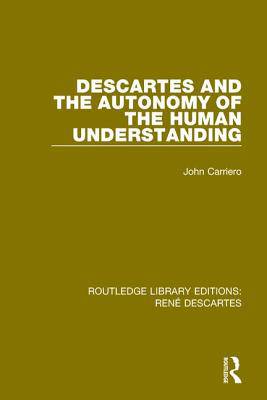
- Afhalen na 1 uur in een winkel met voorraad
- Gratis thuislevering in België
- Ruim aanbod met 7 miljoen producten
- Afhalen na 1 uur in een winkel met voorraad
- Gratis thuislevering in België
- Ruim aanbod met 7 miljoen producten
Descartes and the Autonomy of the Human Understanding
John CarrieroOmschrijving
This volume, originally published in 1990, delineates the transition Descartes effects from a prevalent medieval conception of understanding to a modern conception of it. Through the examination of the continuities and discontinuities between Descartes' account of the understanding and that of high scholasticism, a characterization emerges of two way in which the understanding is autonomous in Descartes' view. These two sorts of autonomy shed light on the origin of a set of related concerns that give modern philosophy its coherence, setting it apart from medieval philosophy as a distinct tradition. The first sort - the independence of the understanding of the senses - creates the modern problem of scepticism with regard to the external world. The second sort, concerning the ontological status of the mind, provides the background against which modern discussions of the mind/body problem take shape.
Specificaties
Betrokkenen
- Auteur(s):
- Uitgeverij:
Inhoud
- Aantal bladzijden:
- 262
- Taal:
- Engels
- Reeks:
Eigenschappen
- Productcode (EAN):
- 9781138202320
- Verschijningsdatum:
- 9/08/2016
- Uitvoering:
- Hardcover
- Formaat:
- Genaaid
- Afmetingen:
- 156 mm x 233 mm
- Gewicht:
- 475 g

Alleen bij Standaard Boekhandel
Beoordelingen
We publiceren alleen reviews die voldoen aan de voorwaarden voor reviews. Bekijk onze voorwaarden voor reviews.












